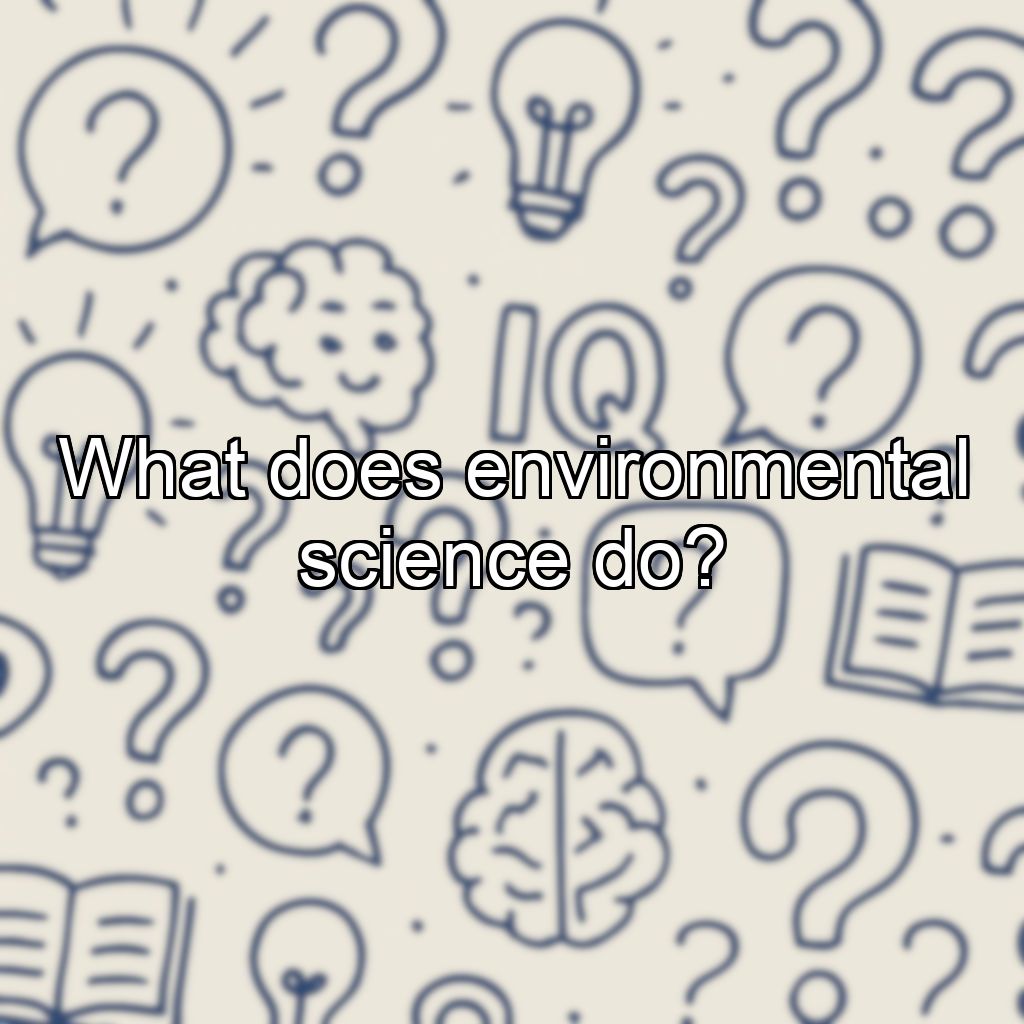What does environmental science do?

What Environmental Science Does
Environmental science is an interdisciplinary field that studies the interactions between the physical, chemical, and biological components of the environment, as well as the impact of human activity on these systems.
Main Functions of Environmental Science
- Understanding Natural Processes: It examines how natural processes (such as the water cycle, nutrient cycles, and energy flow) function within ecosystems.
- Analyzing Human Impact: Environmental science investigates how human activities—like pollution, deforestation, urbanization, and climate change—affect the environment.
- Problem-Solving: The field seeks to identify environmental problems and develop solutions to issues such as air and water pollution, waste management, habitat loss, and resource depletion.
- Promoting Sustainability: It provides knowledge and strategies for using resources sustainably and minimizing negative environmental impacts.
- Informing Policy and Education: Environmental science provides scientific data and recommendations to policymakers, organizations, and the public to help guide decisions that affect the environment.
Overall, environmental science plays a crucial role in protecting the environment, improving human health, and ensuring a sustainable future.